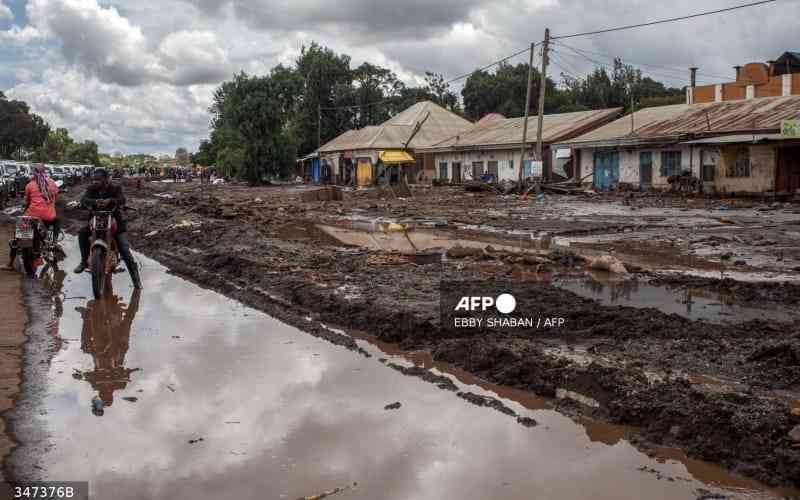By Makau Mutua
Let me today say what most are whispering. Kenya, once known as an island of tranquility in a sea of chaos, is going to the dogs – almost literally. The country is being “mungikinised” right before our very eyes. Mungiki, the violent cultural-religious political cult, has become a verb. It simply means “criminalisation.” My view is that the “mungikinisation” of Kenya is more dangerous than al-Shabaab’s Islamic radicalisation.
That’s because the former is generalised while the latter is an isolated vice of one religion’s fanaticism. Islamic extremism can be uprooted or neutralised, but “mungikinisation” is akin to the metastacisation of a deadly cancer – it can spread and kill a whole nation. I chose Mungiki to make my point because its gruesome killings and horrors – executed to instil terror – have morphed into Kenya’s everyday life. Sample some of its vile and satanic practices – heads of beheaded children left at doorsteps, decapitated corpses with mutilated genitalia in the mouths of severed heads, and forcible whippings and oathings of senior politicians.
It is the kind of depravity that sends chills down the backs of the most battle-hardened soldiers. What’s shocking is that these Mungiki tactics have become commonplace. Every two-bit criminal and gang is a Mungiki copycat.
Carjackings of the high and mighty, home invasions and rapes, and beatings and daylight robberies have become the norm. No leafy elite estate has been spared.
I am not an expert on Mungiki sociology and its exploits. But I know when it started to be normalised. I recall a scene in the heart of Nairobi in 2002 – at the height of the General Election – when Mungiki took over the city.
The Mungiki – with the police watching from the sidelines – marched unimpeded in support of presidential candidate Uhuru Kenyatta, then KANU’s flag-bearer. It was a bizarre sight to behold: A known criminal gang taking over one of the world’s major cities. Gangster Al Capone, the father of Chicago’s legendary crime syndicate in the 1920s, would have been proud. Except in Mungiki’s case, the KANU Government was in collusion. That’s really how the “mungikinisation” of Kenya started.
Mungiki is not the only criminal gang to infect mainstream politics, and criminalise daily life.
The Taliban, Baghdad Boys, Kosovo Boys, The Republican Council, Amachuma, Chinkororo, Jeshi la Mzee and many criminal-political outfits have been regularised by their political patrons. It is unsurprising that many of these gangs are tribal – meant to serve the interests of ethnic barons. But what the political elite did not seem to appreciate was that such monsters become a law unto themselves. Gradually, many of the gangs have turned the tables on their godfathers – they now call the shots. The result is the criminalisation of politics and everyday life. The untouchability of the gangs gives them power to terrorise common citizens and elites alike.
We all remember former President Kibaki’s attempt to criminalise and wipe out the Mungiki early in his tenure in 2003. The late John Michuki, the no-nonsense autocrat under the NARC Government, used an iron fist to try and decimate Mungiki. Untold carnage ensued. He hunted the Mungiki everywhere – ruthlessly. The violent group went underground. Its leaders were prosecuted and some renounced their membership. Mungiki spiritual leader Maina Njenga claimed to have converted to Christianity.
It is true the Mungiki survived Minister Michuki – and all indications are that the group simply lay low, but is still a potent organisation. What is not in dispute is that Mungiki inspired – and was the forerunner – of the general lawlessness prevalent in Kenya today. The decay of a State or society does not happen overnight. It is a slow burning process. Take Nigeria, for example. Boko Haram, the violent extremist Muslim group, has paralysed the giant of Africa. But Boko Haram is a manifestation of the failure of the Nigerian State to cohere into a nation, and to give economic meaning to its people.
Nigeria would not have seen the rise of Boko Haram had it used its vast oil wealth to build a vibrant industrial democracy. Instead, the ravenous elite ate everything and refused to heal the country’s religious and ethnic cleavages. Once citizens lose faith in the State – as has happened in Nigeria – it is virtually impossible to get it back.
This is the question that Kenya must now confront – how do we return the country to an era of innocence? As I have said before, I do not remember Kenya being this unsafe – where a criminal lurked behind every corner. In the 1990s, expats used to call Kenya’s capital city “Nairobbery.” They should come back to Nairobi today, and see how the City in the Sun has truly become a war zone. I agree the Shabaab is a big problem, but it pales in comparison to the general criminalisation – “mungikinisation” – of Kenya. That is what is posing an existential threat to Kenya.
Stay informed. Subscribe to our newsletter
 The Standard Group Plc is a
multi-media organization with investments in media platforms spanning newspaper
print operations, television, radio broadcasting, digital and online services. The
Standard Group is recognized as a leading multi-media house in Kenya with a key
influence in matters of national and international interest.
The Standard Group Plc is a
multi-media organization with investments in media platforms spanning newspaper
print operations, television, radio broadcasting, digital and online services. The
Standard Group is recognized as a leading multi-media house in Kenya with a key
influence in matters of national and international interest.
 The Standard Group Plc is a
multi-media organization with investments in media platforms spanning newspaper
print operations, television, radio broadcasting, digital and online services. The
Standard Group is recognized as a leading multi-media house in Kenya with a key
influence in matters of national and international interest.
The Standard Group Plc is a
multi-media organization with investments in media platforms spanning newspaper
print operations, television, radio broadcasting, digital and online services. The
Standard Group is recognized as a leading multi-media house in Kenya with a key
influence in matters of national and international interest.








